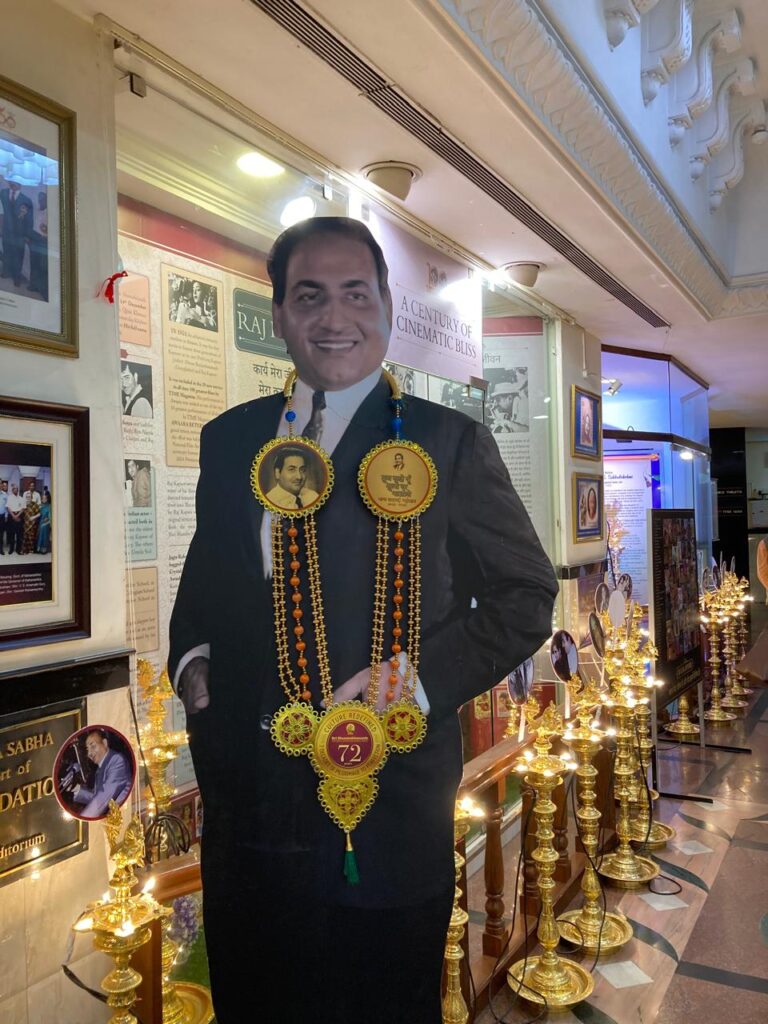
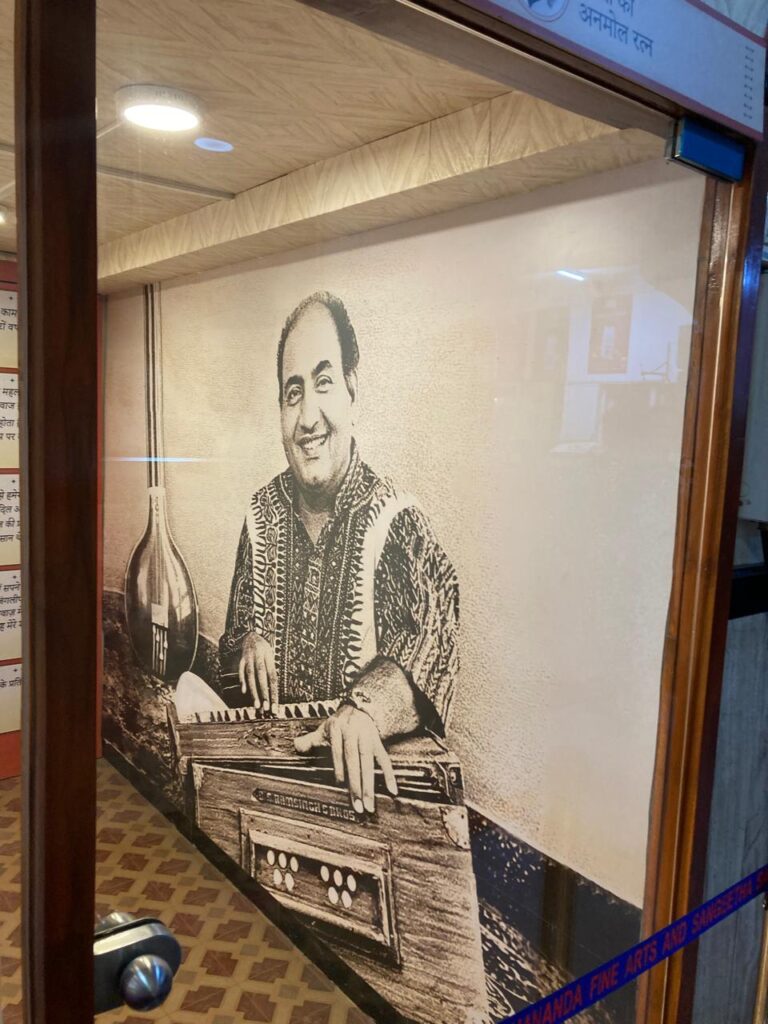
A Timeless Melody: Tribute to Mohammed Rafi on His 45th Death Anniversary
“Hazaro’n saal Nargis apni be-noori pe roti hai, Badi mushkil se hota hai chaman mein Didawar paida”
On July 31, 2025, we mark the 45th death anniversary of Mohammed Rafi, a luminary whose voice remains an eternal beacon in the world of music. The above couplet, penned by Mirza Ghalib, captures the rarity and brilliance of Rafi’s gift—a voice that bloomed like a once-in-a-millennium flower in the garden of Indian cinema. Known as the Shahenshah-e-Tarannum (Emperor of Melody), Rafi’s legacy transcends time, his songs weaving emotions that continue to resonate with millions. This tribute celebrates the divine voice, unparalleled versatility, and saintly persona of Mohammed Rafi, whose music remains a cherished companion across generations.
The Divine Voice of Indian Cinema
Born on December 24, 1924, in Kotla Sultan Singh, Punjab, Mohammed Rafi was destined to become a legend. From mimicking a fakir’s chants in his village streets to captivating audiences worldwide, Rafi’s journey was one of passion, perseverance, and prodigious talent. His ability to adapt his voice to the persona of actors, from the romantic Dev Anand to the intense Dilip Kumar, made him the soul of playback singing. With a repertoire spanning over 7,405 songs in 24 languages, including Hindi, Punjabi, Bengali, and even Persian and Dutch, Rafi’s versatility was unmatched. His voice could convey joy, sorrow, devotion, or rebellion with equal finesse, earning him accolades like six Filmfare Awards, a National Film Award, and the prestigious Padma Shri in 1967.
A Journey Rooted in Humility
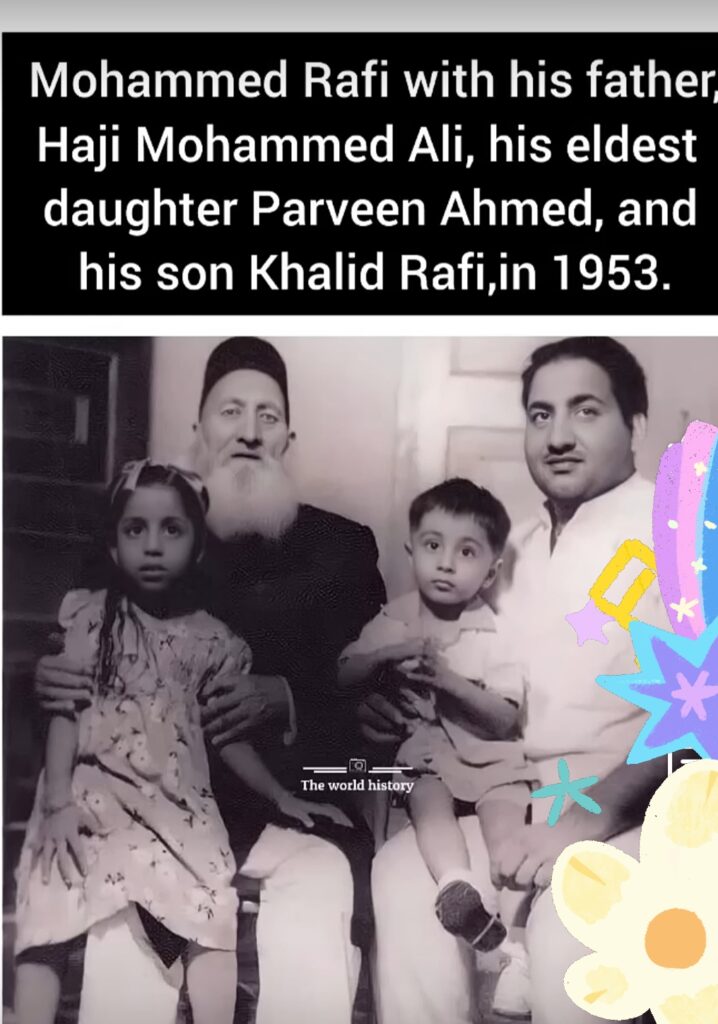
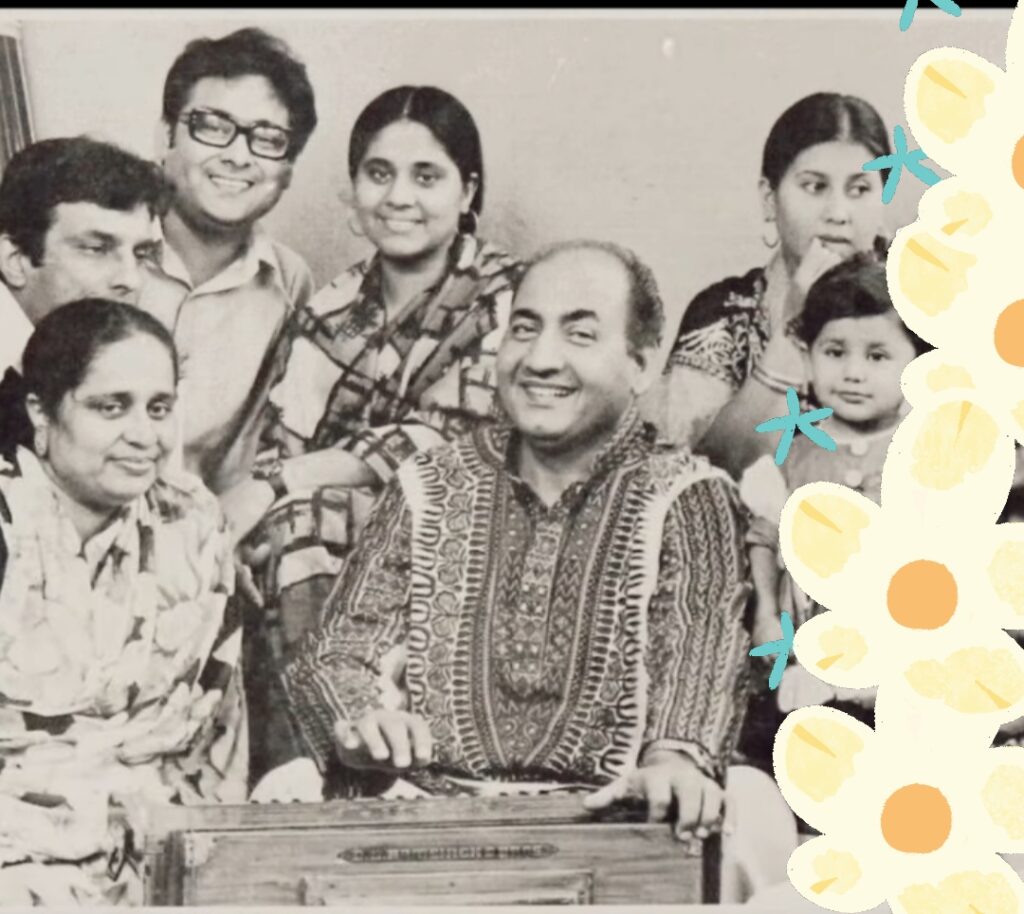
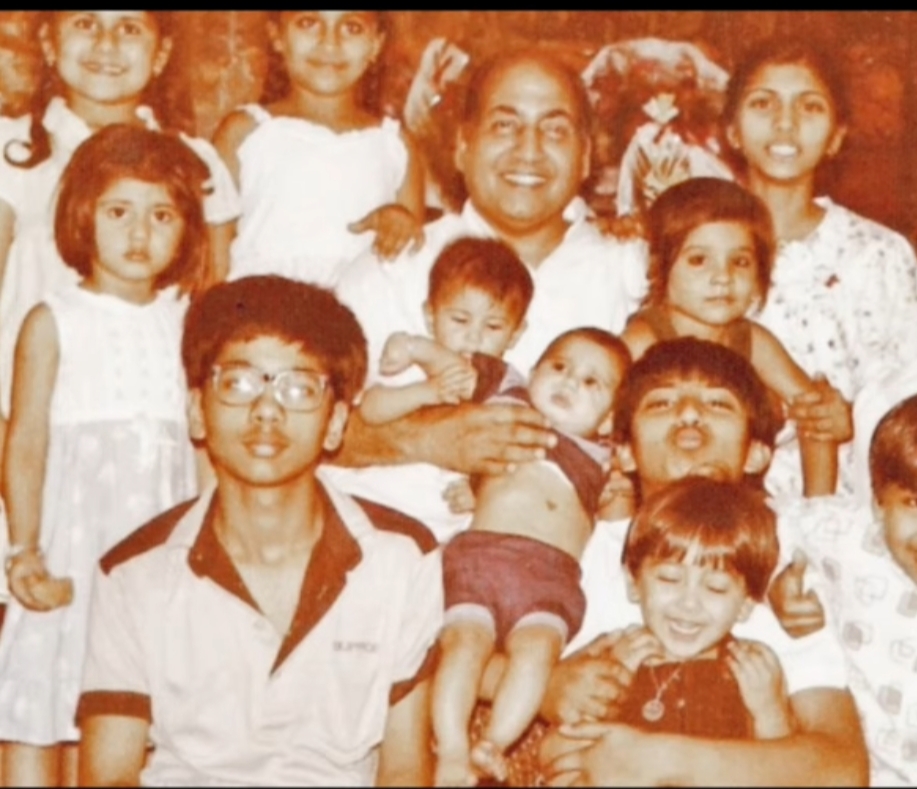
Pic credit you tube
Rafi’s early life was marked by simplicity. Moving to Lahore in 1935, he trained under luminaries like Ustad Abdul Wahid Khan and Firoze Nizami, honing his craft in classical music. His first public performance at 13, alongside K.L. Saigal, hinted at the greatness to come. By 1944, Rafi arrived in Bombay, renting a modest room in Bhendi Bazar and stepping into the film industry with songs like “Aji dil ho kaabu mein” for Gaon Ki Gori (1945). His collaboration with music directors like Naushad, Shankar-Jaikishan, and S.D. Burman defined the golden era of Hindi cinema, creating melodies that remain timeless.
The Magic of Rafi’s Versatility
Rafi’s genius lay in his ability to master every genre, from soulful bhajans to lively qawwalis, romantic ballads to patriotic anthems. Below, we celebrate his legacy through some of his most iconic songs, each a testament to his unparalleled range.
Soul-Stirring Bhajans
Rafi’s devotional songs carried a divine purity. “Mann tadpat Hari darshan ko” from Baiju Bawra (1952) is a haunting plea for divine connection, its classical undertones showcasing Rafi’s mastery. The song’s emotive depth, paired with Naushad’s composition, remains a spiritual touchstone.
Heartfelt Ghazals
Rafi’s ghazals were poetry in motion. “Chaudhvin ka chand ho” from Chaudhvin Ka Chand (1960) is a masterpiece of romance and longing, its delicate phrasing capturing the beauty of love. Rafi’s voice, soft yet profound, elevates the song into a timeless classic.
Vibrant Qawwalis
In “Parda hai parda” from Amar Akbar Anthony (1977), Rafi’s energetic delivery and command over rhythm bring the qawwali to life. His ability to infuse joy and devotion made him a qawwali icon, resonating with audiences across faiths.
Poignant Sad Solos
Rafi’s ability to convey heartbreak was unparalleled. “Din dhal jaye” from Guide (1965) captures the ache of unfulfilled love with a melancholic grace. His voice mirrors the protagonist’s inner turmoil, leaving listeners spellbound.
Romantic Masterpieces
No tribute to Rafi is complete without his romantic ballads. “Mere mehboob tujhe” from Mere Mehboob (1963) is a lyrical ode to love, its intricate phrasing and emotional depth showcasing Rafi’s romantic finesse. The song remains a favorite for lovers across generations.
Iconic Duets
Rafi’s duets were a celebration of chemistry. “Yeh reshmi zulfein” from Do Raaste (1969), sung with Lata Mangeshkar, exudes playful romance, with Rafi’s voice complementing the melody’s charm.
Classical and Semi-Classical Gems
Rafi’s classical training shone in songs like “Mann re tu kahe na dheer dhare” from Chitralekha (1964). Its semi-classical structure, combined with Rafi’s emotive delivery, creates a meditative experience that lingers.
Stirring Patriotic Songs
Rafi’s patriotic songs inspired generations. “Kar chale hum fida” from Haqiqat (1964) is a stirring tribute to soldiers, its powerful lyrics and Rafi’s impassioned rendition evoking pride and sacrifice.
Regional and Non-Filmi Brilliance
Rafi’s versatility extended to regional languages and non-film songs. His Punjabi song “Mera man pyasa” from Gambler (1971) reflects his ability to capture regional nuances while retaining universal appeal.
Light-Hearted Comedy Songs
Rafi’s playful side sparkled in “Aasman se aaya farishta” from An Evening in Paris (1967). His lively rendition, paired with Shammi Kapoor’s charisma, makes it a delightful listen.
A Voice That United a Nation
Rafi’s music transcended boundaries, uniting people across cultures and languages. His 1948 song “Suno Suno Ae Duniyawalon, Bapuji Ki Amar Kahani,” created overnight after Mahatma Gandhi’s assassination, moved the nation, earning Rafi a silver medal from Jawaharlal Nehru. His ability to evoke shared emotions—whether through the patriotic fervor of “Jinhein naaz hai Hind par” from Pyaasa (1957) or the universal longing of “Tum mujhe yun bhula na paoge” from Pagla Kahin Ka (1970)—cemented his place in India’s cultural fabric.
The Final Note
On July 31, 1980, Rafi left the world after recording “Shaam Phir Kyun Udaas Hai Dost” for Aas Paas, succumbing to a heart attack at 55. His funeral procession, attended by over 10,000 mourners, reflected the love he inspired. The government declared two days of public mourning, a testament to his impact. Even today, his voice echoes in homes, radios, and hearts, proving that true artistry never fades.
A Call for Bharat Ratan
Mohammed Rafi’s contributions to Indian music and culture are monumental. His ability to breathe life into every genre, his humility, and his universal appeal make him a deserving candidate for the Bharat Ratan. On his 45th death anniversary, we join countless fans in urging the nation to honour this musical titan with India’s highest civilian award.
An Eternal Legacy
Rafi’s songs are more than melodies; they are emotions, memories, and stories that bind generations. As we remember him, we hum “Woh jab yaad aaye, bahot yaad aaye”—a line that captures the ache of his absence and the joy of his eternal presence. Mohammed Rafi, the Didawar of Indian music, continues to live in every note, reminding us that a voice so divine can never truly fade.
Hasnain Naqvi is a former member of the history faculty at St. Xavier’s College, Mumbai





